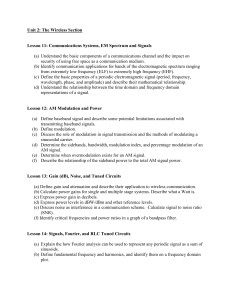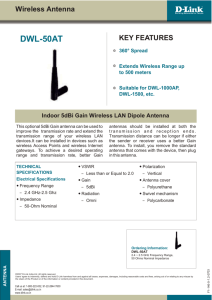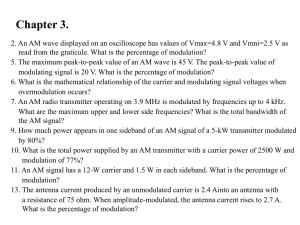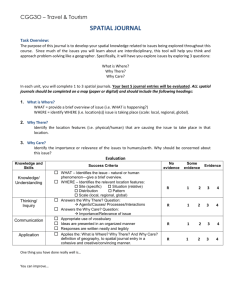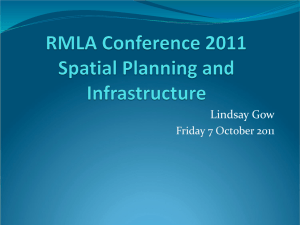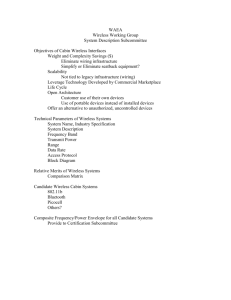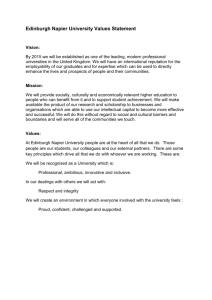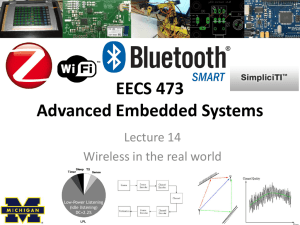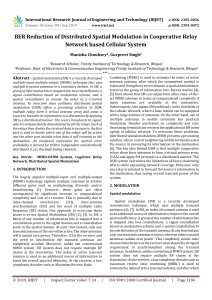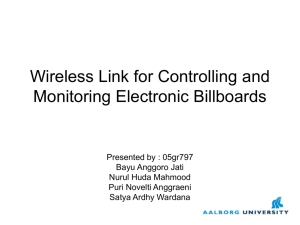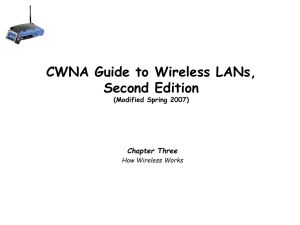Job Openings: Two Marie Curie Fellowships - Early
advertisement
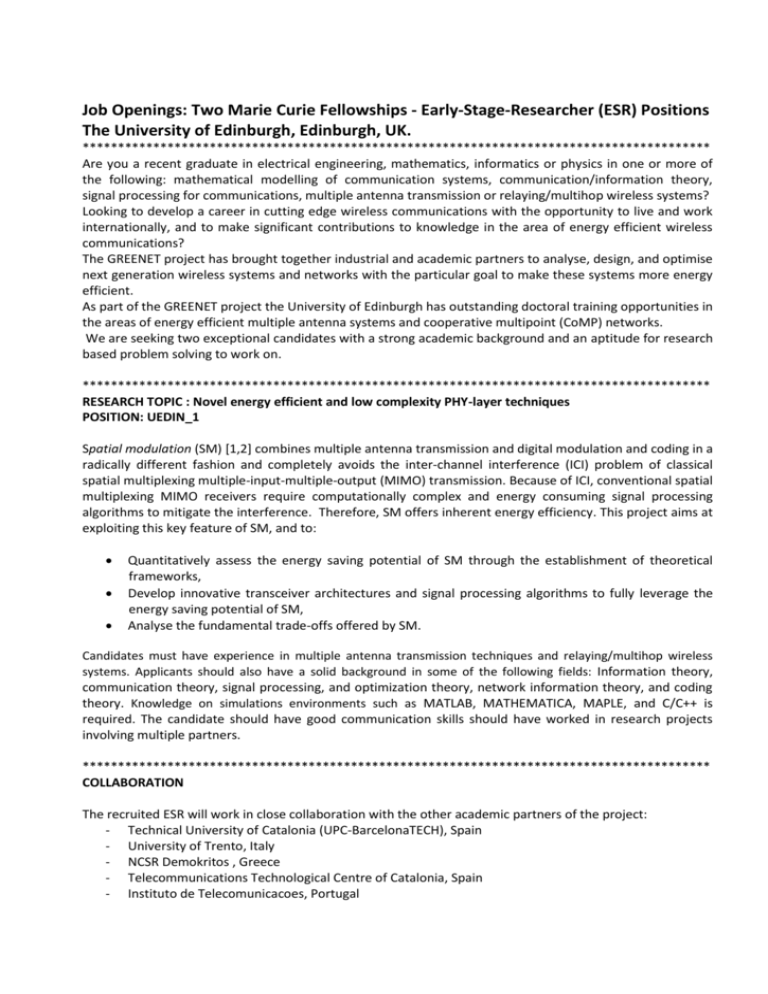
Job Openings: Two Marie Curie Fellowships - Early-Stage-Researcher (ESR) Positions The University of Edinburgh, Edinburgh, UK. ***************************************************************************************** Are you a recent graduate in electrical engineering, mathematics, informatics or physics in one or more of the following: mathematical modelling of communication systems, communication/information theory, signal processing for communications, multiple antenna transmission or relaying/multihop wireless systems? Looking to develop a career in cutting edge wireless communications with the opportunity to live and work internationally, and to make significant contributions to knowledge in the area of energy efficient wireless communications? The GREENET project has brought together industrial and academic partners to analyse, design, and optimise next generation wireless systems and networks with the particular goal to make these systems more energy efficient. As part of the GREENET project the University of Edinburgh has outstanding doctoral training opportunities in the areas of energy efficient multiple antenna systems and cooperative multipoint (CoMP) networks. We are seeking two exceptional candidates with a strong academic background and an aptitude for research based problem solving to work on. ***************************************************************************************** RESEARCH TOPIC : Novel energy efficient and low complexity PHY-layer techniques POSITION: UEDIN_1 Spatial modulation (SM) [1,2] combines multiple antenna transmission and digital modulation and coding in a radically different fashion and completely avoids the inter-channel interference (ICI) problem of classical spatial multiplexing multiple-input-multiple-output (MIMO) transmission. Because of ICI, conventional spatial multiplexing MIMO receivers require computationally complex and energy consuming signal processing algorithms to mitigate the interference. Therefore, SM offers inherent energy efficiency. This project aims at exploiting this key feature of SM, and to: Quantitatively assess the energy saving potential of SM through the establishment of theoretical frameworks, Develop innovative transceiver architectures and signal processing algorithms to fully leverage the energy saving potential of SM, Analyse the fundamental trade-offs offered by SM. Candidates must have experience in multiple antenna transmission techniques and relaying/multihop wireless systems. Applicants should also have a solid background in some of the following fields: Information theory, communication theory, signal processing, and optimization theory, network information theory, and coding theory. Knowledge on simulations environments such as MATLAB, MATHEMATICA, MAPLE, and C/C++ is required. The candidate should have good communication skills should have worked in research projects involving multiple partners. ***************************************************************************************** COLLABORATION The recruited ESR will work in close collaboration with the other academic partners of the project: - Technical University of Catalonia (UPC-BarcelonaTECH), Spain - University of Trento, Italy - NCSR Demokritos , Greece - Telecommunications Technological Centre of Catalonia, Spain - Instituto de Telecomunicacoes, Portugal and with the possibility of collaboration with researchers from the industry: - WEST Aquila, Italy - Acticom, Germany - EADS, France - Innoroute, Germany ***************************************************************************************** RELEVANT REFERENCES [1] Mesleh, R., Haas, H., Sinanović, S., Ahn, C. W. and Yun, S., "Spatial Modulation," IEEE Transactions on Vehicular Technology, vol. 57, no. 4, pp. 2228 – 2241, July 2008. [2] Di Renzo, M., and Haas, H., "A General Framework for Performance Analysis of Spatial Modulation (SM) for MISO Systems over Correlated Nakagami-m Fading Channels", IEEE Trans. Commun., vol 58, iss. 9, DOI 10.1109/TCOMM.2010.09.090565, 2010, pp.: 2590 - 2603 ***************************************************************************************** ELIGIBILY - The applicant should be, at the time of selection, in the first four years of their research careers (measured from the date when they obtained the degree which would formally entitle them to embark on a doctorate). - The applicant should not already have a PhD and they should have the qualifications to embark on a PhD program. - The applicant must not have resided or carried out their main activities (work, studies, etc.) in the UK for more than 12 months in the last 3 years immediately prior to the appointment. ***************************************************************************************** FINANCIAL PROVISIONS Marie Curie ITNs provide competitive financial support to the ESR including: - a competitive monthly living and mobility allowance, - a yearly travel allowance (i.e., a fixed amount of money based upon the direct distance between the location of origin of the researcher and the UK), - a career exploratory allowance (i.e., a single payment for attending job interviews, additional courses, job fairs, etc.), and - coverage of the expenses related to the participation of the ESR in research and training activities (contribution to research-related costs, meetings, conference attendance, training actions, etc.). ***************************************************************************************** CONTACT FOR INFORMAL ENQUIRIES For further information please visit: The University of Edinburgh: www.ed.ac.uk The Institute for Digital Communications (IDCoM): http://www.see.ed.ac.uk/research/IDCOM/ Informal email enquiries can be made to Prof. Harald Haas h.haas@ed.ac.uk.
